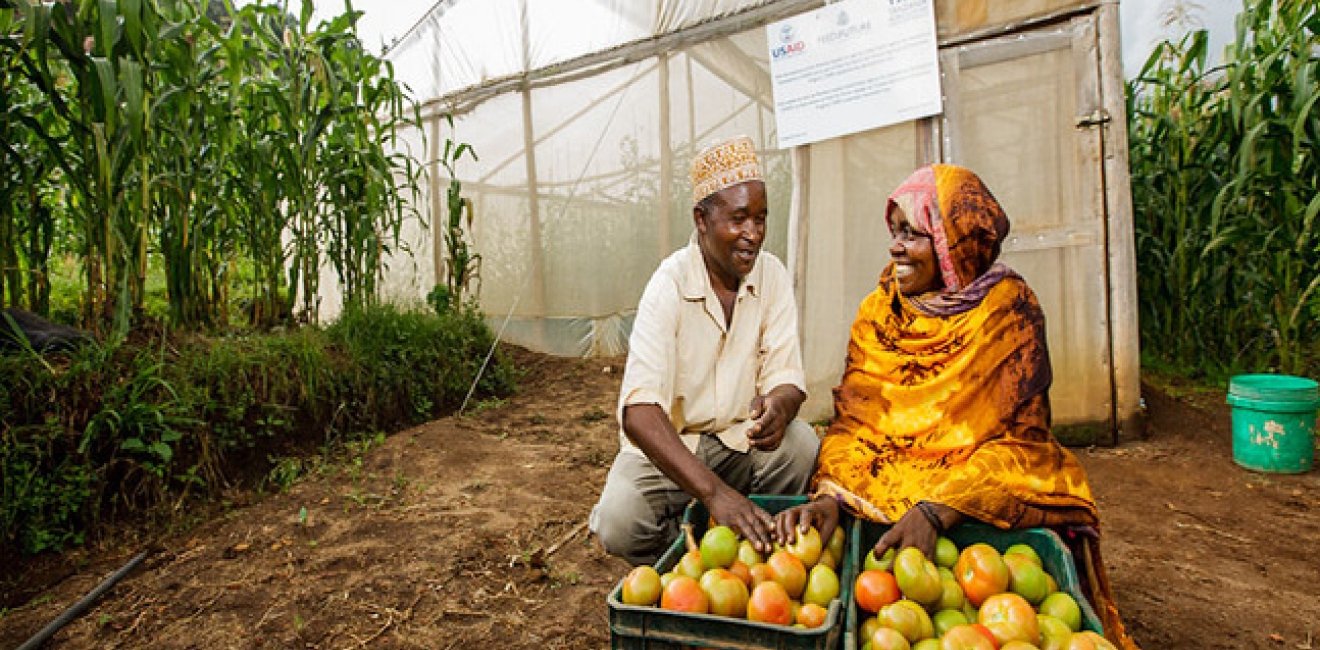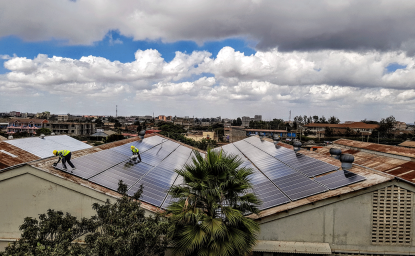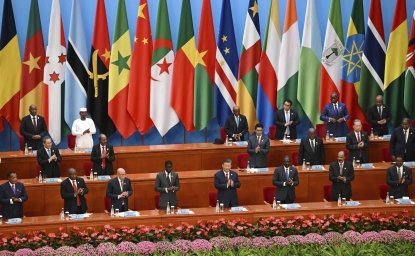
A blog of the Africa Program
There are some 40 countries that can easily enter in the category of fragile states today, and a good number of them are found in Sub-Saharan Africa. These are countries with weak governance or institutional incapacity. They fail to carry out some critical governance functions such as ensuring the security of their populations and territory, maintaining the rule of law, and delivering key public services. Life in fragile or weak states is marked by endemic corruption, bad governance, political instability, insecurity, rampant poverty, hunger, high (child) mortality rates, social and political unrest, etc. As time goes by in such an environment, populations and communities tend to have their resilience eroded. They become particularly vulnerable to a range of shocks without the ability to face them adequately. Violence, conflicts, and sometimes the breakdown of institutions start to factor in.
Many fragile African countries, especially in Sub-Saharan Africa, demonstrate underdeveloped or underperforming agriculture. Poor policies or bad governance further marginalizes the agriculture sector. However, the contribution of agriculture to the national economy is considerable as compared to other sectors. In many cases, agriculture contributes an average of 30 percent of the countries' Gross Domestic Product (GDP) and employs three-quarters of the national workforce. Most of them depend on subsistence agriculture for incomes and livelihoods. These are all segments of the population that the governments in fragile states and their partners leave out when they fail to invest adequately in the agricultural, livestock, and fishery sectors. With a vast majority living in rural areas — where public service is more often absent and infrastructure eroded — many of the poor feel a social injustice. In short, agricultural underdevelopment in fragile countries can easily pave the way for conflict, as it fuels hunger and poverty among the larger segments of the population. In countries with rebel-armed groups, young people are susceptible to recruitment when they are politically, socially, and economically marginalized.
How to reverse the tide and prevent fragile states from becoming a theater of violence and conflict? There is a growing consensus around the crucial role of agriculture, or more accurately, agricultural development in bringing stability to fragile societies. An increase in agricultural productivity allows us to decrease poverty and hunger, and to enhance stability. Nevertheless, achieving agricultural development does not seem very evident. Development organizations have implemented different approaches with a variety of outcomes. However, there is no magic bullet for agricultural development. Yet, the role of agricultural extension in taking agriculture to the next level seems indisputable.
A glimpse into the beginning of the history of extension can teach us quite a great deal. A history that goes back to the establishing of the society of Philadelphia in 1785.[i] Some agricultural societies were established to introduce their members to all sorts of development aiming at improving agriculture. Beneficiaries were also invited to create local agricultural organizations and spread useful agricultural information. By doing so, farmers could push others to join in agricultural development. Some of the agricultural societies requested speakers from institutions involved in promoting agriculture, while some high institutions started to develop programs and trained individuals well versed in science and its applications. This knowledge exchange allowed organizations to not only reach out to farmers but also share scientific-based knowledge that could make a difference in their farming activities.
Beyond all the technicalities, extension is all about improving agriculture. More accurately, it is about creating an interconnected community of researches, scientists, and farmers that share knowledge and experiences. It is about helping relationships geared to the improvement of agriculture and building on available expertise as well as new (science-based) knowledge and techniques. For many farmers in fragile countries, agricultural extension remains the best-kept secret for agricultural growth. Several characteristics make extension of particular value in fragile settings. It can be tailored to each context needs and ensures a certain proximity, helping bring the government and development partners closer to the most marginalized communities. Agricultural extension is rooted in a participatory approach, allowing farmers to have their say. It empowers the farmers, strengthening their capacities and allowing them to face and overcome the challenges they may come across. In this sense, it reinforces their resilience.
They are many models of extension available with specific goals. Some key features can be fundamental for extension in African fragile settings:
- The organization of the extension services in fragile settings should be decentralized and rural-centered. Extension specifically needs to work toward the reduction of rural hunger and poverty by strengthening rural food security and livelihood. Enhancing rural livelihood requires that subsistence or smallholder farmers diversify the sources of their incomes, going beyond agriculture alone.
- Extension in fragile settings would do well to focus on human and social capital building. Farmers should be entrusted with skills and new competencies likely to make them more productive and market competitive. The extension services should improve their organizational capacity by allowing them to create or effectively manage self-help groups, common interest groups, credits organizations, etc. With this, the farmers or rural populations are able to manage seed and grain storage banks and savings-credit groups, as well as supervise community health services and schools for their children. The strengthened social capital will also help promote a sense of community governance.
- Extension needs to develop a sense of stewardship for the environment by promoting knowledge and skills in natural resource management. The process should bring the farmers to retrieve or highlight some effective traditional knowledge in the protection of the environment. At this level, extension can play a pivotal role in helping the farmers develop climate-smart approaches to cope better with the adverse effects of climate change.
- The use of technology to promote farmers' access to information and the market is on the rise, with beneficial effects on communities. Extension in African fragile settings should consider the inclusion of technological services to better promote agricultural productivity.
Extension is beyond doubt an interesting tool to reach out to marginalized rural populations of fragile countries in order to boost their livelihoods. Investing in extension will certainly contribute to sustainable peace.
Fr. Paterne Mombe is a doctoral student at Tangaza University College in Kenya, where he studies social transformation with a specialization in sustainable development. He was also a Southern Voices Network for Peacebuilding Scholar during the fall 2019 term.
[i] True, Alfred Charles. A history of agricultural extension work in the United States, 1785-1923. No. 15. Arno Press, 1969.
Author

Graduate Student, Tangaza University

Africa Program
The Africa Program works to address the most critical issues facing Africa and US-Africa relations, build mutually beneficial US-Africa relations, and enhance knowledge and understanding about Africa in the United States. The Program achieves its mission through in-depth research and analyses, public discussion, working groups, and briefings that bring together policymakers, practitioners, and subject matter experts to analyze and offer practical options for tackling key challenges in Africa and in US-Africa relations. Read more





